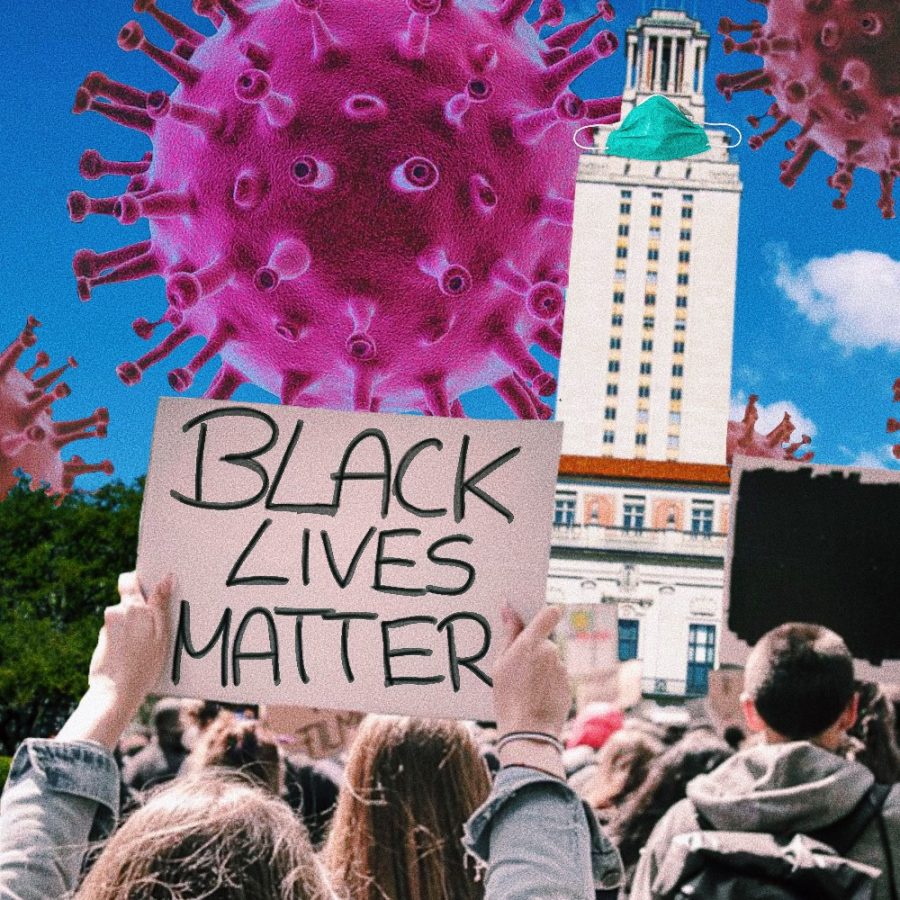These issues are nothing new
January 19, 2021
Last semester, the world flipped upside down. This semester, the pandemic upended everything we thought we knew — or expected to know — about life in college. Almost 2,000 members of our community have contracted COVID-19, and that number continues to grow.
However, despite these “unprecedented times,” some things remain the same: the lack of transparency UT administration affords its students and its continual failure to listen to student voices. Whether it be regarding COVID-19 policy, online learning, sexual misconduct or Black students’ demands, our University’s disregard for student advocacy has persisted even through a pandemic.
While we applaud the hardworking campus staff who keep our campus a clean and safe environment, students have mostly had to fight for themselves this semester.
UT has largely kept students in the dark about how and why it makes critical decisions, despite students offering input through virtual town hall meetings, Student Government, The Daily Texan or even online.
Over a year and a half ago, the editorial board called for increased transparency from University Communications. The board cited several practices, including asking for questions in advance and an insistence on conducting interviews via email, that reinforce the various roadblocks student journalists face on campus.
We and other journalists at the Texan are still dealing with the same problems. Our columnists are repeatedly frustrated, and so are we.
Frustrated that we can’t get the interviews we need. Frustrated we can’t publish our pieces on deadline because a communications liaison has refused to respond to our emails and phone calls. Frustrated that we can’t do our jobs because someone else isn’t doing theirs.
All of this together is indicative of a larger trend, one that student journalists on campus have been dealing with for years. We’ve come to realize that these institutionalized problems will likely persist past this semester, and we’re worried that no amount of pressure will convince our University to fix them.
This semester, we’ve largely focused on ways to make campus as safe as possible, but the pandemic isn’t the only thing that threatens student safety. We haven’t forgotten UT administration’s failure to meet student demands for transparency and action regarding sexual misconduct.
Despite a town hall last spring, student protests, the creation of a sexual misconduct working group and the hiring of outside expertise, Sahotra Sarkar and Coleman Hutchison remain on the course schedule, along with others.
It’s unacceptable, but given UT’s track record on the topic, not surprising.
The editorial board has covered the ongoing issue of sexual misconduct again and again and again. But we have yet to see any significant policy changes. The pandemic is not an excuse to do the bare minimum on this matter, and we cannot allow this issue to be sidelined any longer.
Release an updated list of staff and faculty found guilty of sexual misconduct. Create actionable steps for change. Give students the restorative justice program they were promised. We shouldn’t have to wait any longer.
Administrators have also disregarded students’ demands for UT to eliminate traditions that honor UT’s racist history.
Over the summer, a number of Black student groups released a petition calling for UT to move UT’s culture away from its racist roots. Some of those demands were met, either wholly or with compromise.
Others were not. One such demand concerned “The Eyes of Texas.”
Instead of ending “The Eyes of Texas” tradition, our administrators decided a better course of action would be to invite the UT community to own and acknowledge all aspects of the origins of our school song.
We understand this song’s vile history. We know how uncomfortable it makes our fellow students. We know Black students have been speaking into the void for years about the disrespect they feel when they hear “The Eyes of Texas.”
Students know and have been talking about these issues for years. And for years, UT administration has pretended to hear but never actually listened. But that’s nothing unprecedented, is it?
The editorial board is composed of associate editors Abhirupa Dasgupta, Hannah Lopez, Sanika Nayak, Julia Zaksek, and editor-in-chief Emily Caldwell.












